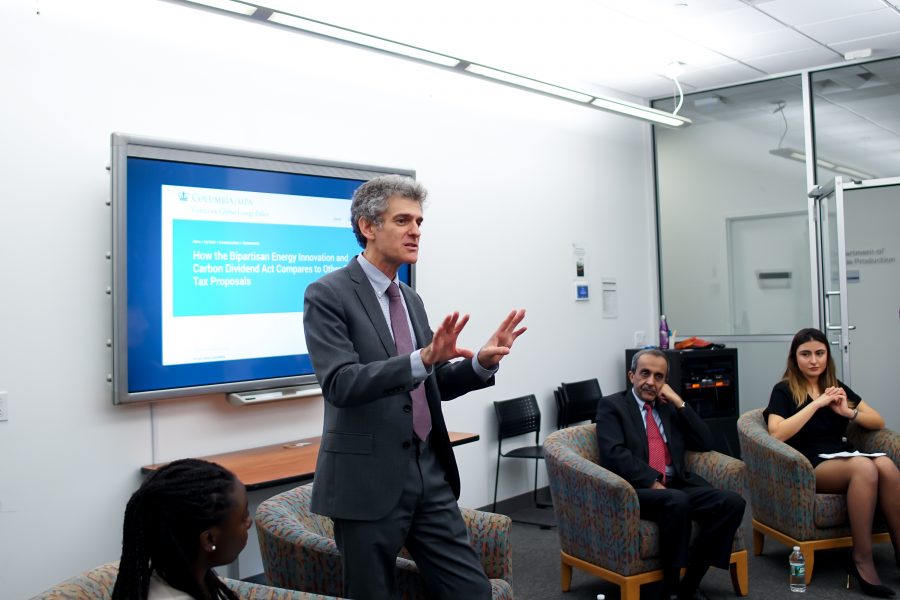In an effort to increase university-wide sustainability, NYU’s Sustainability Working Group announced 35 new initiatives at last week’s University Senate meeting. These initiatives, which include the promise to eliminate the purchase of plastic water bottles by 2020, are in various stages of implementation; four are completed or underway, 16 are near-term actions and 15 require further study.
NYU students think these new initiatives may have an impact on how global communities perceive the university. Liberal Studies first-year Alfonso Tan spoke about the impact that these initiatives may have in an interview with WSN.
“NYU’s responsibility to be sustainable is greatly increased by its global presence,” Tan said. “It has the ability to influence the various countries it interacts with.”
Completed Initiatives
Along with the elimination of single-use water bottles, the Working Group has committed to providing reusable dishware at the Kimmel Center for University Life, with no change in dining fees. One of the main sources of disposable waste is single use K-Cup products, so any NYU office that purchases K-Cups will now be enrolled in a program which composts and recycles the materials.
Two other prominent initiatives are focused on education and engagement by creating an online portal that provides students with information on the hundreds of courses and events that NYU has to offer. The Working Group also hopes to educate incoming students, and the group has partnered with Welcome Week administrators to add programs that focus on sustainability.
The focus on student engagement serves as a way to highlight the many ways students can get involved with sustainability efforts on campus.
“Students who care about sustainability at NYU generally have many options to engage,” Environmental Studies professor Christopher Schlottmann said. “This includes through the Office of Sustainability as well as the many environmental academic programs available at NYU.”
Finally, in order to achieve carbon neutrality by 2040, NYU is planning to transition to all-electric Public Safety vehicles.
“The Working Group list is not the sum total of everything NYU is doing,” Vice President of Sustainability Cecil Scheib wrote. “There are already many programs and initiatives going full speed ahead. Our carbon commitments, for example, are a 50 percent cut from the 2006 baseline year by 2025 and carbon neutrality by 2040.”
Near-Term Actions
Near-term actions are initiatives that individual offices hope to implement in the coming year. These include initiatives from NYU IT, which intend to introduce new software that will power down office IT equipment when not in use. This will be paired with choosing eco-friendly common office supplies when affordable starting in spring 2019.
The Office of Sustainability will start organizing a cross-school sustainability committee this year led by Deans of Faculty. In 2020, Human Resources will incorporate sustainability topics into staff professional development. NYU is also announcing a new category in the Making a Difference Award, which specifically highlights sustainability.
Scheib spoke about how the addition of the sustainability category to the Making a Difference Award gives an incentive for departments to comply with the goals of the Working Group.
“The [sustainable] difference award is a great incentive,” Scheib wrote. “The goal of many of the initiatives is to make doing the right thing just as easy, or easier, than doing the less sustainable thing. That is the best incentive and makes penalties unnecessary.”
Require Further Study
Among the initiatives that require further study are plans to encourage stairwell use in the NYU community and transitioning desk phones to energy saving phones. Another initiative that the Working Group is currently looking into is adding sustainability performance indicators or questions in an effort to motivate key leaders in communities, along with building positive connections with environmental justice groups.
NYU is considering ways to reduce waste generated by NYU Marketing by providing an electronic alternative to traditional paper marketing. In terms of transportation, NYU is looking to make on-campus biking easier and educating faculty on telecommunication strategies as an alternative to airplane travel.
Despite a majority of initiatives still in progress, Scheib seems confident that student engagement will be essential in helping these initiatives have a wide-scale impact within the NYU community.
“Students’ passion for sustainability is why I am confident that in the end we will prevail,” Scheib wrote. “Like other social change movements, this one will take decades. Remember to pace yourselves and get ready for the long haul.”
Additional reporting by Anish Fonseka. A version of this article appears in the Monday, Feb. 25, 2019, print edition. Email Mansee Khurana at [email protected].























































































































































